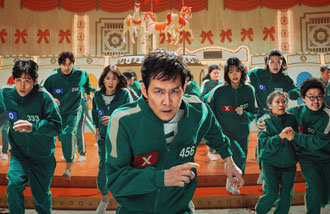Patriot Hwang Ki-hwan’s remains return to motherland
Patriot Hwang Ki-hwan’s remains return to motherland
Posted April. 10, 2023 07:52,
Updated April. 10, 2023 07:52

The remains of Hwang Ki-hwan (1884-1923), an independence activist known as the real person of the main character Eugene Choi in “Mr. Sunshine,” will arrive in South Korea on Monday 100 years after he passed away.
The late patriotic hero will be welcomed by Patriots and Veterans Affairs Minister Park Min-shik and descendants of independence patriots including Lee Jong-chan, a descendent of independence activist Lee Hoe-young, who currently serves as chief director at the Woodang Foundation for Education and Culture at Incheon International Airport, said the ministry on Sunday. The event will also be attended by former pastor-in-charge Jang Cheol-woo of the Korean Methodist Church and Institute and his wife who first discovered Hwang’s grave in the United States in 2008.
The reception event involves an offering of flowers, incense burning, the delivery of a patriotic medal of the Order of Merit for National Foundation that was awarded to him in 1995 and the transfer of remains. The repatriation ceremony is held in front of the Hyeonchungtap Memorial Tower at the Daejeon National Cemetery in the afternoon. Themed “See you again,” the final words of the main female character in the TV series, the ceremony consists of an introductory session on Hwang’s contributions, the carrying of the remains, an offering of flowers, incense burning, commemorative performance, and burial.
A certificate of family registration is presented to Hwang during the repatriation ceremony. The ministry said that family registration procedures had recently been completed to make him a legitimate Korean national 100 years after his death. Before then, he had been an unregistered person as he had no descendants.
While studying in the United States, he voluntarily joined the U.S. armed forces in 1917 and fought in the First World War. Moving to France in 1919, he assisted the Korean delegation at the Peace Conference at Paris including Kim Kyu-sik, one of the leaders in the Korean independence movement. It led him to be assigned as chief secretary of the Mission of the Republic of Korea in Paris on behalf of the provisional government of the Republic of Korea and stand at the forefront of the independence movement. Afterwards, he served as commissary for foreign affairs in London for the provisional government's foreign affairs ministry in 1921. He devoted himself to the independence of his motherland until he died of heart disease in New York in April 1923.
Sang-Ho Yun ysh1005@donga.com







